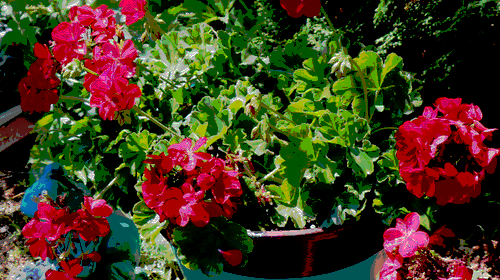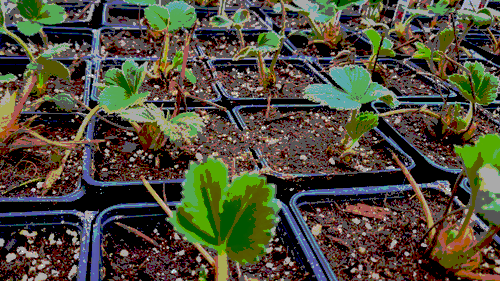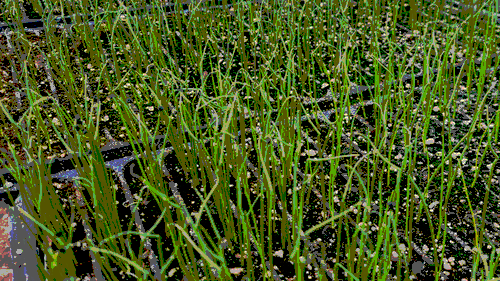Now that spring is here, some people may be thinking about starting a garden but don’t know where to start.
From flowers and herbs to fruits and vegetables, the choices can be overwhelming for first-timers.
Chris Pikula, assistant manager at Plant Ranch in Regina, has several recommendations on how to make gardening fun.
The ground is a bit too cold to start planting right away, Pikula said, and advises people to wait until the ground is soft enough to dig through with their hands.
“You wouldn’t want to be having too many plants in the ground before nighttime lows are averaging around one or two,” he said.
Pikula said to start, he recommends marigolds and chrysanthemums for both new and old gardeners for multiple reasons.
“They’re nice and colourful, they’re fairly easy to take care of, you don’t need to worry too hard about under watering or overwatering them,” he explained. “They’re pretty pH resistant … and they are also natural insect repellents. A lot of things like aphids or spider mites will bite them and they’ll leave the area.”
“They just make the garden a pleasant experience.”
Pikula said the pH in Regina is a bit high due to the older pipes in the ground, so it can be difficult to get started on the hard soil, as most plants usually like a soil pH on the lower side.
“What I actually recommend for a lot of people if you’re just starting out, there’s a whole bunch of crops you can grow or vegetables and plants you can grow in containers,” he said.
 Begonias are seen in this photo. (Photo courtesy of Gus, a Plant Ranch customer) “It makes it for a bit more of a starting off pleasant experience. I wouldn’t recommend that if you’re doing like a 10 by 10 plant in the community gardens but for just something small in the backyard, it’s a great way to start,” he added.
Begonias are seen in this photo. (Photo courtesy of Gus, a Plant Ranch customer) “It makes it for a bit more of a starting off pleasant experience. I wouldn’t recommend that if you’re doing like a 10 by 10 plant in the community gardens but for just something small in the backyard, it’s a great way to start,” he added.
Some plants that don’t mind growing in three or five gallon containers are peppers, tomatoes, corn, lettuce, and spinach, as well as cucumbers and herbs and spices, according to Pikula.
Pikula said some people plant the container in the ground or cut the bottom off the container so the roots can go deeper.
“The container itself acts as sort of a garden barrier for the plants, it can’t go sideways and the lawn can’t overtake it,” he said.
As for general tips for new gardeners, Pikula said fertilizing and proper watering are important.
“Plants need fertilizer like people need food … if you have plants outdoors, try and fertilize them every other week or so,” he said. “Big deep waterings are better than frequent light waterings and you should water in the afternoons or early mornings, not during the heat of the sun.”
“If you do have problems with plants, odds are it’s generally overwatering, under watering, or not enough fertilizer. That’s 98 per cent of problems.”
 Strawberries are seen in this photo. (Photo courtesy of Plant Ranch) When it comes to planting different types of things, Pikula recommends paying attention to spacing.
Strawberries are seen in this photo. (Photo courtesy of Plant Ranch) When it comes to planting different types of things, Pikula recommends paying attention to spacing.
“You don’t want to plant your onions right beside your cucumber or a watermelon patch because the vines will go through there and they’ll take them all down,” he said. “But for the most part, it’s a little beneficial actually to have plants have other plants beside them.”
“Corn and lettuce actually really like being beside one another. The lettuce benefits from a little bit of shade from the tall corn plants and the corn benefits from the increased moisture from the lettuce providing ground cover,” he added.
If people want to attract pollinators, Pikula said to plant bee bombs, marigolds, and chrysanthemums.
Certain things can be toxic for dogs and cats, so Pikula recommends avoiding planting lilies, onions, and aloe vera if you have a pet in the yard.
 Onions are seen in this photo. (Photo courtesy of Plant Ranch) “I’d recommend looking to see what plants your particular pet is allergic to in general. And then if you’re getting something new and unusual, then that would be a spot to check as well,” he said.
Onions are seen in this photo. (Photo courtesy of Plant Ranch) “I’d recommend looking to see what plants your particular pet is allergic to in general. And then if you’re getting something new and unusual, then that would be a spot to check as well,” he said.
If you’re eager to get started, you can prepare your yard by raking and getting rid of weeds. Picking the right spot is essential, as you will need to make sure your plants are near a water source.
According to Plant Ranch, making sure you know the sun patterns of your yard is important, as most edible plants and herbs need at least six hours of sunlight to grow.
A good rule of thumb is to start planting after the May long weekend if you live in Regina, according to their website.
For people who want to start planting later in the summer, there would still be plenty of options.



